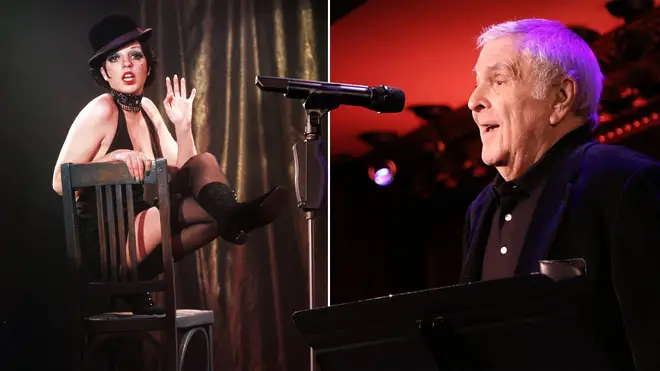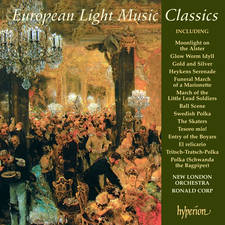‘Cabaret’ composer’s closeted college relationship uncovered by grandson decades later, in a forgotten musical…
6 June 2022, 14:24

Before John Kander became the legendary Broadway musical composer known for hits like, ‘Cabaret’, and ‘Chicago’, he met Dave Fisher. This is their story.
Listen to this article
John Kander is an American composer most known for his work in the world of musical theatre.
The 95-year-old was part of the songwriting team known as Kander and Ebb, which was made up of himself and lyricist Fred Ebb.
Together, the two artists created timeless musical classics including Cabaret (1966) and Chicago (1975), the former of which earned the team a Tony Award in 1967.
During his 65-year-long career, Kander has amassed an impressive three Tony awards, two Grammys, two Emmys, and a Laurence Olivier Award. He also wrote the theme song to the Martin Scorsese film New York, New York; a song laid down in the history books by Frank Sinatra.
But it’s a one-act musical written when Kander was 22 that has captured the heart of the Internet in recent days, as a previously undocumented relationship between the award-winning composer and a college classmate has come to light thanks to an inquisitive grandson.
Read more: 15 great classical composers who also happened to be gay

Kander and Ebb Perform New York, New York
Dave Fisher was a college freshman when he first locked eyes with Kander while moving into his shared dorm room at the Oberlin Conservatory of Music in Ohio.
According to Fisher, Kander had “the prettiest eyes”, and it was in this moment that the young Fisher knew he was gay.
At least that’s what Sama’an Ashrawi, Fisher’s grandson, says his grandfather told him shortly before his passing.
In a thread published on Twitter, and a longer story published on the Elis Audio app, Ashrawi describes the relationship his grandfather and Kander developed while students at the prestigious Midwest music school some 75 years ago.
My Grandpa Dave told me he was sure he was gay when he was moving into his dorm room freshman year of college and there was a boy “with the prettiest eyes;” after Grandpa passed, I learned from my mother who that boy was. pic.twitter.com/DTYw6sKFmZ
— Sama’an Ashrawi (@SamaanAshrawi) June 5, 2022
Kander and Fisher were boyfriends during a time when you couldn’t be ‘out’.
Ashrawi recounts that as a child, whenever his grandfather (affectionately known as Grandpa Dave) would come to visit, he would sit down at the piano and play Cabaret, Kander’s 1966 musical.
This was a gesture that Ashrawi would come to realise was a very romantic one.
“My grandfather would kind of gingerly and delicately pluck the same notes that John wrote all those years ago,” Ashrawi explains on the Elis Audio app. “To me it’s kind of like the musical version of when you look up at the moon, and imagine the person you’re very far away from is also looking at it too.
“It was very romantic.”
Read more: Definitively the most romantic pieces of classical music ever written

Cabaret - Cabaret (1972) [High Quality Stereo Sound, Subtitled]
It wasn’t until the middle of the pandemic however, when Ashrawi spied a record on their family home shelf.
“In isolation, I had been stuck in the house for a year, and there was this one bookcase I walked past every single day,” recalls Ashrawi. “And this particular time I was walking by I noticed something I had never seen before. It was a little 7-inch vinyl poking out from one of the shelves.
“So I took it out and I studied it. Everything on the label was written in pencil.”
The pencilled details on the front of the vinyl read, ‘Our Boy, 1951, John Kander’.
“I was like, Whoa, we have some kind of John Kander record in our house,” Ashrawi relays. “So I asked my mom about it. And she said, this was a song that John had written for Grandpa Dave.”
It was a bookcase I walked by a dozen times a day, maybe more. Why had I never noticed this 7” vinyl poking out of one of the shelves? I pulled it out. It was a custom pressing and written in pencil was: “Our Boy,” the year, “1951,” and the composer’s name: “John Kander.” pic.twitter.com/LYRsFAb49M
— Sama’an Ashrawi (@SamaanAshrawi) June 5, 2022
Listening to the record, Ashrawi noted it sounded like a live recording, played mostly in the lower octaves of a piano.
“There are these big kind of solo moments and then there were the these kind of like more quiet, contemplative, sparse piano moments,” Ashrawi detailed. The somewhat confusing emotive and dynamic range of the music encouraged Ashrawi to begin a search to get in contact with Kander, in order to ask him what this piece was about.
“Being like a kind of Broadway icon, I figured his email probably wasn’t just gonna be online,” Ashrawi laughs. “And I was right! So I did a little more googling, and I found that he had a grand nephew named Jason Kander, who is the former Democratic Secretary of State of Missouri.
“So I sent him a message about the record I'd found and said I was hoping to get in touch with John. Maybe John would have some memories to share with me or something. And sure enough, but a day or two later, I had an email from John Kander.”
Read more: 12 of the best LGBTQ+ classical music ensembles around the world
He told me the record we have isn’t just a song, it’s a whole entire one-act musical called ‘Our Boy’ that he wrote at the age of 22; and not only that, he wanted my grandfather to be the lead 🥹🥹 It was a play about a boxer grappling with the existential feelings of defeat. pic.twitter.com/IWrCBuqNU7
— Sama’an Ashrawi (@SamaanAshrawi) June 5, 2022
It turned out, unlike Ashrawi’s original assumption, Our Boy was not simply a song Kander had written for his grandfather, but a one-act musical, in which Kander had wanted Fisher to play the lead role.
The dance-drama musical was about a boxer grappling with the existential feelings of defeat. Kander sent Ashrawi photos from the show’s original production in which his grandfather is seen playing the lead role, sporting nothing but shiny boxer’s shorts.
The family had previously never seen these pictures, and Ashrawi said, “the pictures were so clear that I felt like I was there. I was in the audience. I was watching grandpa Dave, play this boxer. It was beautiful. It was beautiful.”
Then John sent me some photos of my grandfather that we’d never seen before. There was my grandpa, Dave Fisher, in his shiny boxing shorts, looking young and curious and serious all at once. How incredible 😭😭😭 pic.twitter.com/mmicQ7sOGB
— Sama’an Ashrawi (@SamaanAshrawi) June 5, 2022
Ashrawi and his family met up with Kander for lunch in New York after the discovery of Our Boy. Kander, who has been in a relationship with choreographer Albert Stephenson since 1977, went into more detail about how he encouraged Fisher into the lead role of Our Boy back when they were in college.
Fisher would eventually become a doctor, and was described as the kind of kid who was obsessed with getting good grades.
“Theatre was liberating for my grandfather,” Ashrawi explains. “And in a society where you just simply could not be out at that time, the theatre in the stage was a place where people could be themselves even when they were being someone else.”
Kander told Ashrawi that he and Fisher had “real chutzpah”. The pair apparently spent almost all of their time outside of class in the theatre.
“We were honest with each other,” Kander told Ashrawi. “Honesty not in terms of not lying to each other, but more about being honest about who we were and who we were becoming. Dave [Fisher] was a great gift to me.”
In New York just recently, my family (minus one sister) went to meet up with John, now 95, in person. My mother hadn’t seen him since she was a child. pic.twitter.com/Jw32uPOlur
— Sama’an Ashrawi (@SamaanAshrawi) June 5, 2022
Alongside his medical practice, Fisher continued his thespian pursuits until nearly the end of his life.
During his conversation with Ashrawi, Kander remarked on something his time together with Fisher had taught him, “no matter how bad things are in society, if you can just locate the theatre, you’ll be home”.






















